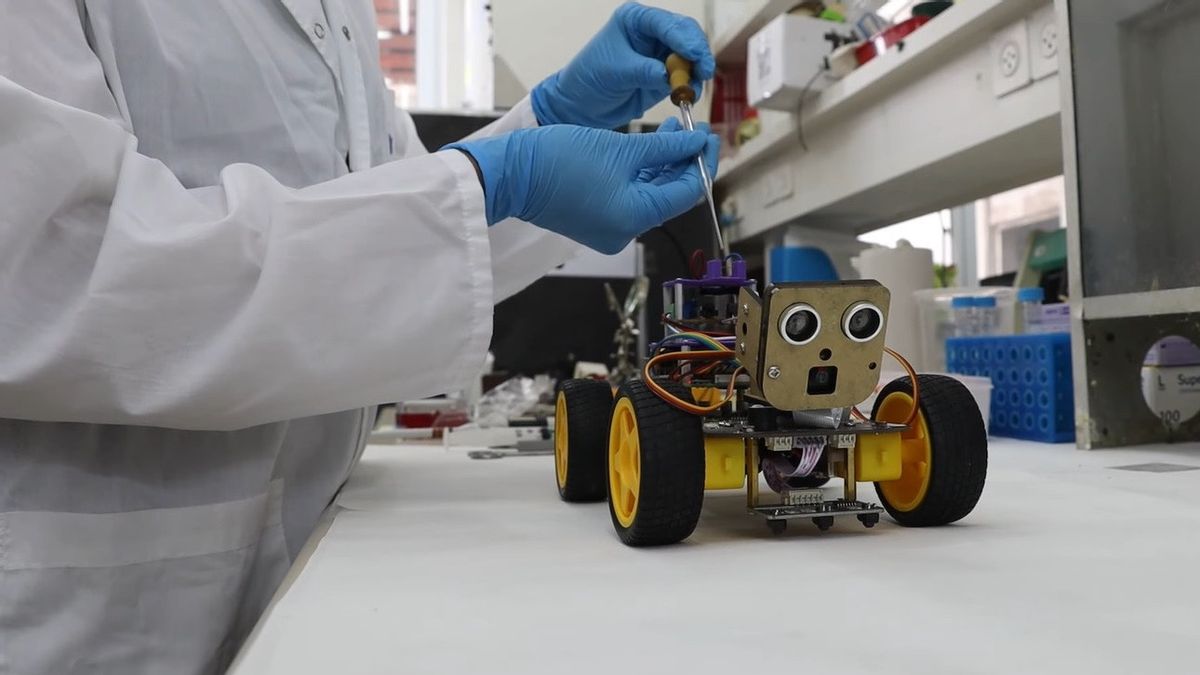JAKARTA - A new sniffer robot equipped with a biological sensor that uses locust antennas, can help advance disease diagnosis to increase safety checks, its developers from Israel said.
"Obviously it has a sharp sense of smell, which researchers at Tel Aviv University have successfully exploited for their bio-hybrid robots, thus making it much more sensitive than the existing electronics sniffer," they said.
Drinks with their antennas. In four-wheeled robots, researchers place insect antennas between two electrodes that transmit electric signals in response to nearby odors. Each odor has unique characteristics, which the robotic electronics system can identify with machine learning.
"In the end, we tried to create a robot with a sense of smell that could distinguish odors and find them in space," Neta Shvil of Sagol School of Neuroscience said.
When scientists tried to understand how some animals detected disease through smell, one of Ben Moaz's scientists said future applications would hardly have a limit, extending to the detection of drugs, explosives to food safety.
"We are 'exclusive' with various possibilities," said Maoz of the Faculty of Engineering Fleischman and Sagol School of Saraf Science.
The discovery of these scientists was published in the February edition of the journal 'Biosensor and Bioelectronics'.
"A basic organ, such as a locust antenna, can produce a unique signal for every odor," said Ben Maoz, citing CNET.
"Smelling is one way we can understand the world. We can use it to identify good things like food [and] perfume and bad things like gas leaks [and] unpleasant foods. This concept will allow robots to help us identify things we can't do right now," he said.
According to Maoz and other research colleagues, in the animal world, insects excel in receiving and processing sensory signals.
"Comparison with standard measuring tools suggests that the sensitivity of insect noses in our systems is about 10,000 times higher than the tools currently used," Yossi Yovel, a biologist at Tel Aviv University and co-author of the study, said in a statement.
However, the robot is still in its very early development stage, only time will tell whether a police sniffer dog will eventually materialize. But looking to the future, Maoz believes that might happen, saying "the ceiling is" in terms of integrating robots with biological sensors.
The English, Chinese, Japanese, Arabic, and French versions are automatically generated by the AI. So there may still be inaccuracies in translating, please always see Indonesian as our main language. (system supported by DigitalSiber.id)













